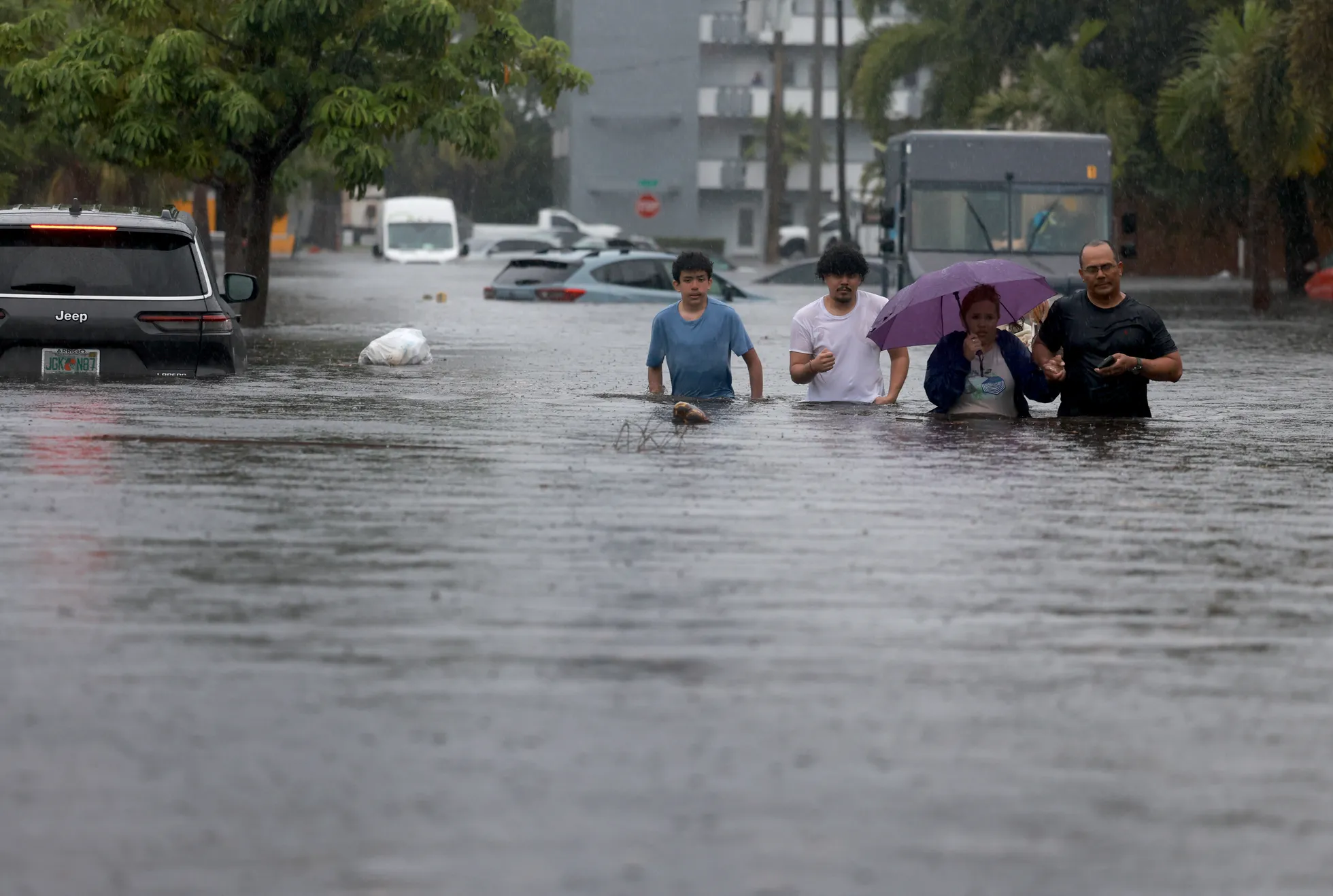The newly built migrant detention center in the Florida Everglades, dubbed "Alligator Alcatraz," is facing severe allegations of inhumane treatment and unsanitary conditions, raising urgent questions about the intersection of environmental justice and human rights.
Detainees Describe Horrific Conditions
Reports emerging from the "Alligator Alcatraz" facility reveal detainees enduring deplorable living conditions. According to the Associated Press, detainees have recounted experiences of consuming food infested with worms, using overflowing toilets, and living in spaces flooded with sewage. These stories of desperation are echoed by attorneys and families, who describe a facility where basic human rights are not just overlooked but blatantly violated.
Government Denies Allegations Amidst Outcry
In stark contrast to the harrowing accounts from inside, government officials have consistently dismissed these claims, insisting that the facility meets all required standards. As reported by the New York Times, officials have provided scant details about the conditions and have restricted media access, raising alarm bells for advocates of transparency and accountability.

South Florida battered by heavy rain, flooding
Legislators Demand Access to Facility
A bipartisan group of Democratic lawmakers has taken action, filing a lawsuit against the DeSantis administration for access to the facility. The administration has allowed a limited site visit for legislators on July 12, a move that some see as an attempt to quell mounting criticism. Advocates argue that this secrecy only exacerbates the potential for human rights abuses, as the conditions deteriorate without oversight.
Environmental Implications of Detention Facility
The establishment of the "Alligator Alcatraz" facility is not just a humanitarian disaster; it also poses significant environmental risks. Situated in the fragile ecosystem of the Florida Everglades, the facility"s construction has drawn the ire of environmental groups, who have filed lawsuits to block its operation, as noted by AP News. The ecological sensitivity of the area raises questions about the long-term consequences of such an operation, especially as climate change exacerbates existing vulnerabilities.

June 26, 2020 coronavirus news | CNN
Voices of the Detainees Go Unheard
Many detainees at "Alligator Alcatraz" are individuals with no criminal records, according to immigration attorney Katie Blankenship. The conditions described paint a picture of systemic neglect that extends beyond mere unsanitary living situations. Blankenship emphasized that the lack of access to legal counsel and medical care are crucial violations of due process rights. The inability to communicate freely with attorneys or family members exacerbates the trauma experienced by those detained, further highlighting the urgent need for reform within immigration detention policies.
As advocates continue to rally against the mistreatment of migrants at this facility, the intersection of environmental justice and social justice becomes increasingly clear. The fight against inhumane detention practices is not just a struggle for the rights of individuals; it is a battle for the integrity of our environment and the values that define our society.

![[Video] Federal officers deploy sting balls and flash grenades at Whipple Building](/_next/image?url=%2Fapi%2Fimage%2Fthumbnails%2Fthumbnail-1768340555229-vhfcc-thumbnail.jpg&w=3840&q=75)
![[Video] Crowd-control weapons used in Minneapolis as anti-ICE protesters attack police vehicle](/_next/image?url=%2Fapi%2Fimage%2Fthumbnails%2Fthumbnail-1768336302231-akxf7s-thumbnail.jpg&w=3840&q=75)

![[Video] Protests erupt in Minneapolis after ICE detains teenager, multiple arrests made](/_next/image?url=%2Fapi%2Fimage%2Fthumbnails%2Fthumbnail-1768331835371-z9ylqg-thumbnail.jpg&w=3840&q=75)


![[Video] Gunfire between Iraqi security forces and Sadr militias in Baghdad](/_next/image?url=%2Fapi%2Fimage%2Fthumbnails%2Fthumbnail-1768343508874-4redb-thumbnail.jpg&w=3840&q=75)
